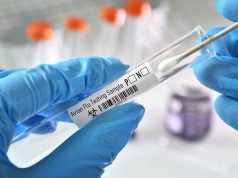Good performance seen for predicting depression, hypomania in people with bipolar disorder
By Lori Solomon HealthDay Reporter
TUESDAY, Dec. 3, 2024 (HealthDay News) — Machine learning shows good performance in detecting mood symptomatology in patients with bipolar disorder (BD) using Fitbit data, according to a study published online Oct. 13 in Acta Psychiatrica Scandinavica.
Jessica M. Lipschitz, Ph.D., from Brigham and Women’s Hospital in Boston, and colleagues evaluated whether a novel, personalized machine learning approach, trained entirely on passive Fitbit data with limited data filtering, could accurately detect mood symptomatology in BD patients. The analysis included 54 adults with BD who wore Fitbits and completed biweekly self-report measures for nine months.
The researchers found that binary mixed-model (BiMM) forest achieved the highest area under the receiver operating curve (ROC-AUC) in the validation process. The ROC-AUC in the testing set was 86.0 percent for depression and 85.2 percent for (hypo)mania. Using optimized thresholds via the Youden’s J statistic, predictive accuracy was 80.1 percent for depression (sensitivity of 71.2 percent and specificity of 85.6 percent) and 89.1 percent for (hypo)mania (sensitivity of 80.0 percent and specificity of 90.1 percent).
“Overall, results move the field a step toward personalized algorithms suitable for the full population of patients, rather than only those with high compliance, access to specialized devices, or willingness to share invasive data,” the authors write.
Several authors disclosed ties to relevant organizations.
Abstract/Full Text (subscription or payment may be required)
Copyright © 2024 HealthDay. All rights reserved.








